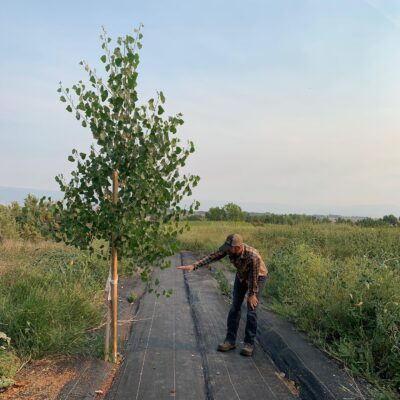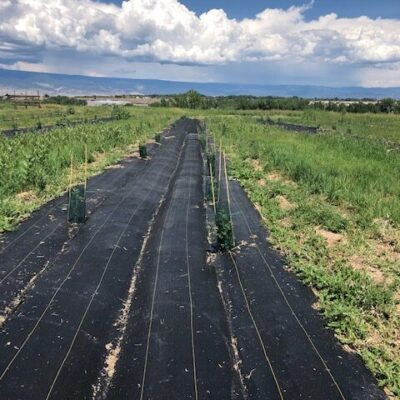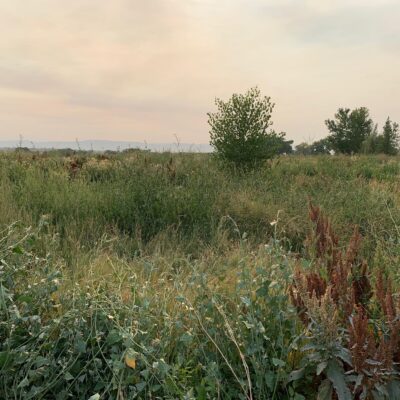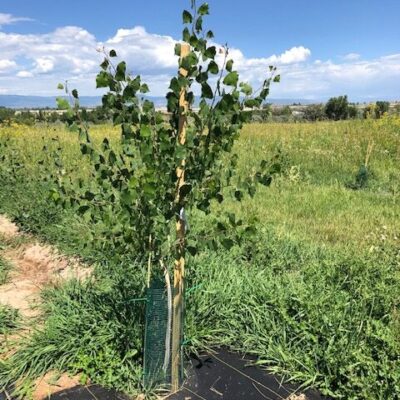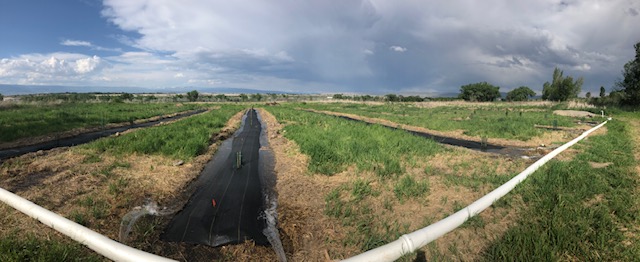
In 2019, WSCC collaborated with North Delta Irrigation Company (North Delta Ditch) to plant over 1000 trees and improve over 40 acres of habitat along the Uncompahgre River near Delta, Co.
The project was completed in partnership with the Bureau of Reclamation (BOR) Basinwide Salinity Program. the program allows irrigation companies to improve water efficiency and reduce salt loading into the Colorado River Basin. When ditch companies get funded through the BOR program to pipe their ditch, the surrounding ecosystem loses important open water and riparian habitat which supports wildlife.
Replacing the “human created” but vital habitat is an important part of the Base Wide Salinity Program. WSCC works with ditch companies to replace the lost habitat by identifying nearby degraded habitats locations and improve them to support local wildlife
Choosing a suitable habitat replacement site is no small matter. BOR requires that the Irrigation Company provide assurances that it will maintain the replacement site for a minimum of 50 years. Therefore, suitable habitat sites are limited to those properties that fall under a conservation easement or are owned by a public entity, such as a municipality or local government. North Delta Ditch chose to utilize a habitat site located south of the town of Delta along the Uncompaghre River. The property is the home of John Welfelt, owner of Welfelt Fabrication and an avid conservationist. John saw an opportunity to further his property goals through the funding North Delta Ditch could provide. North Delta Ditch found a landowner who would help them achieve their habitat replacement goals.
A lot goes into a habitat replacement plan. North Delta Ditch hired Mike Zeman of Wildlife and Natural Resource Concepts & Solutions, to lay out a plan that would improve approx 40 acres of riparian and wetland habitat. The plan included removing Russian Olive and Tamarisk throughout the project site and replace it with native wetland shrubs specifically selected for the wet ecosystem that would provide a reliable food source for wildlife.
North Delta Ditch hired a specialized crew to remove Russian Olive and Tamarisk prior to planting. Reliable water is a key component of project success. The Welfelt property is fortunate to have a number of springs on the property that run all year. An irrigation system was designed and installed specifically for the habitat plan to ensure the success of the new plantings.
WSCC hired a planting crew in June of 2019, to implement the native planting plan for North Delta Ditch. WSCC planted over 1000 trees and shrubs in wildlife shelterbelts and throughout the property and in random plantings. Ground fabric and tree cages were used to reduce competition from weeds and wildlife. Much care went into the planting of each individual shrub so that they would have a successful start. WSCC also organized a volunteer day to help get a large shelterbelt completed. Overall, the shrub and tree planting took about 4 weeks to complete.
Monitoring and maintenance of a habitat project are just as important as the initial start. North Delta Ditch designated a site supervisor to keep up with maintenance tasks such as watering through the season. John Welfelt kept a sharp eye on the health and vitality of the project making adjustments when it was necessary to benefit the new plants.
WSCC was hired in the summer of 2020 to complete maintenance tasks such as fabric stapling, additional tree caging, and weeding.
The project has been hugely successful, not only meeting BOR approval but also become a role model for other Ditch Companies looking to complete habitat replacement sites in their area. WSCC has been proud to be a part of this incredible project and we are looking forward to new opportunities that lie ahead.
